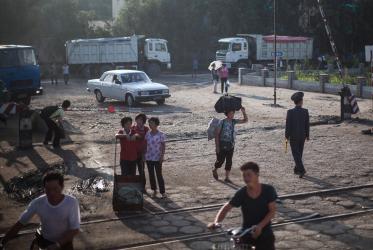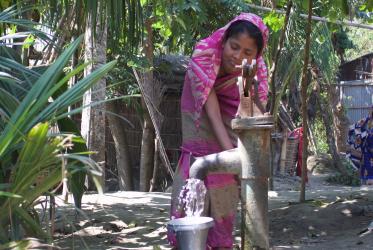Displaying 1 - 20 of 23
21 December 2022
WCC offers health and healing workshop at All Africa Youth Congress
07 November 2022
Unity is key when health crisis poses new challenges in Asia
28 February 2022
UN discussion focuses on women, HIV and property rights
21 March 2017
In Ghana, women bring open minds, honest words
05 July 2016
Voices from HIV workshop reflect deep impact
07 April 2016
Pilgrimage of justice and peace gives vision for WCC programmes
22 November 2014












